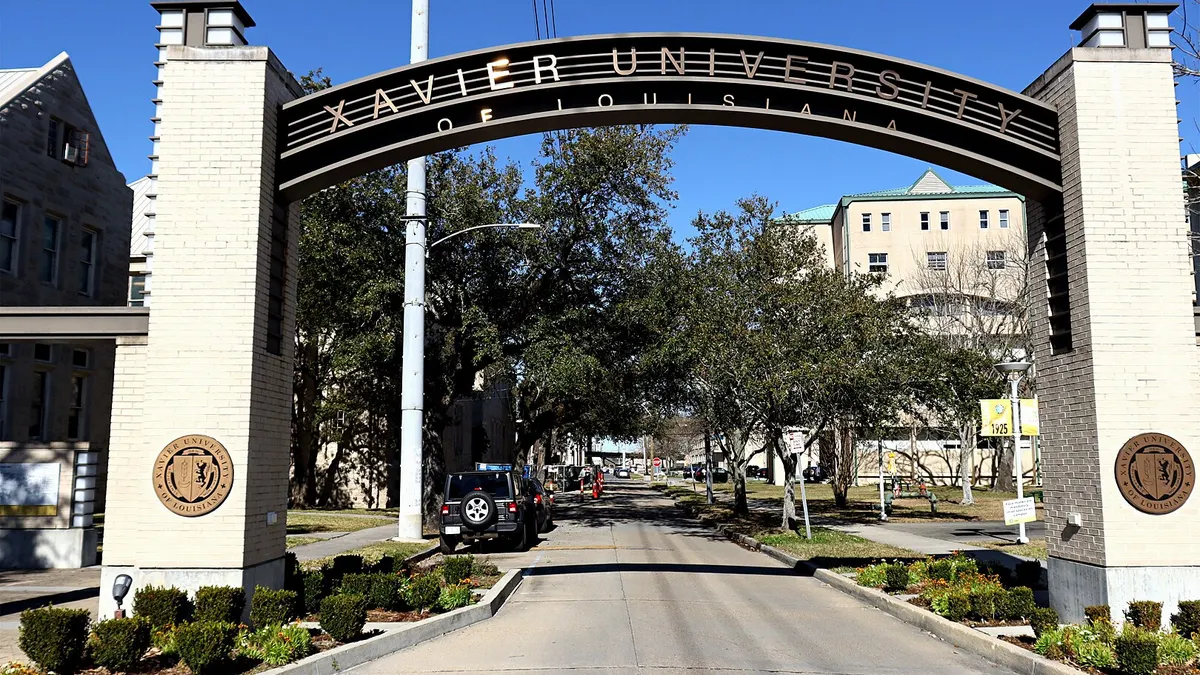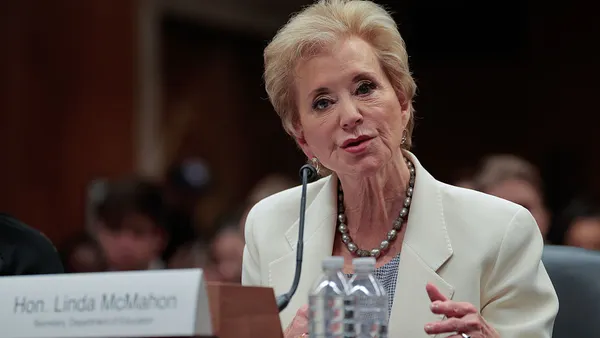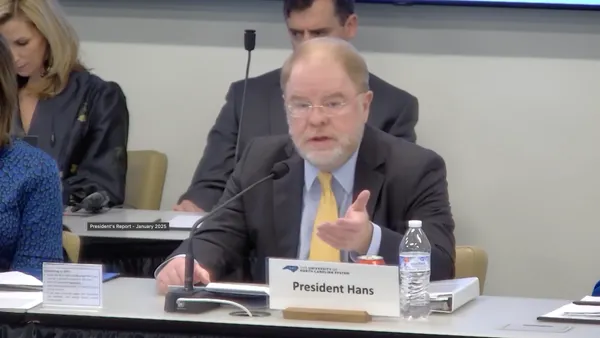Dive Brief:
- The U.S. Department of Education said Tuesday that colleges will not be able to make corrections to federal financial aid forms en masse this application cycle.
- This reverses the department's June announcement that institutional batch corrections to Free Application for Federal Student Aid forms would be available by the first half of August.
- The about-face likely means an increased workload for overstretched college administrators and extends the saga of the new form's tumultuous rollout to the end of summer and beyond.
Dive Insight:
The Education Department released an updated version of the FAFSA in late December, almost three months later than usual. Following publication, the form’s rollout has faced heavy criticism over ongoing delays and limited functionality.
Despite the rapidly approaching start to the fall semester, Tuesday's announcement shows some FAFSA processing issues will continue to go unresolved.
Batch corrections are usually available when the FAFSA form is released and allow financial aid employees to avoid manually submitting individual corrections.
Beth Maglione, interim president and CEO of the National Association of Student Financial Aid Administrators, called the news “beyond frustrating.”
"The Department's poor planning has led to a stunning failure: Some college students might not have financial aid dollars in their hands in time to start classes in the next few weeks," Maglione said in a Tuesday statement.
The Education Department acknowledged Tuesday that the news will create challenges for colleges and higher education organizations.
Maglione was more direct.
"The impact of today's announcement means more than a few extra hours of work. It's the difference between pushing a button versus making thousands of keystrokes in terms of administrative burden," Maglione said.
The department attributed the change in part to its need to allocate resources toward the 2025-26 application cycle.
"We are prioritizing the development of a well-tested, robust, and end-to-end launch of the 2025-26 form and need to ensure development resources are focused appropriately," it said in a statement. The agency added that it is too late in the financial aid season for colleges to use batch corrections.
The Education Department plans to provide increased technical assistance for colleges to submit individual FAFSA corrections. The agency is also extending regulatory flexibilities, such as giving colleges more time to report financial aid disbursements.
The agency is facing intense scrutiny and pressure to ensure that this year's FAFSAs challenges do not create ripple effects for forthcoming application cycles.
Earlier this month, the House’s education committee advanced a bill that would require the Education Department to release the form by Oct. 1 each year. An amendment to the bill would also force the education secretary to testify before Congress if the agency anticipated missing the deadline.
The department is currently obligated to publish the FAFSA by Jan. 1, but has traditionally done so by October.
However, some lawmakers and policy experts warned that a codified October deadline could make things worse for students and colleges if it doesn't include additional resources, as it could force the department to rush an unfinished product out the door.
The U.S. Government Accountability Office opened an investigation into the botched FAFSA rollout earlier this year at the request of more than two dozen lawmakers.
And last week, Rep. Virginia Foxx, chair of the House’s education committee, subpoenaed the Education Department for rollout-related documents and communications.
As of July 19, 47.7% of the high school class of 2024 had submitted the FAFSA, down from 54.7% at the same time last year, according to an analysis from the National College Attainment Network.












